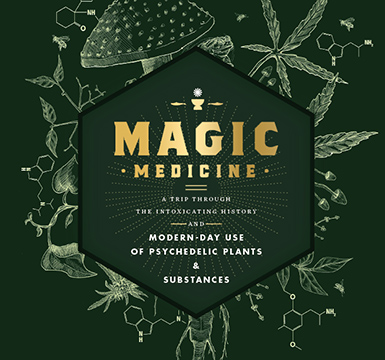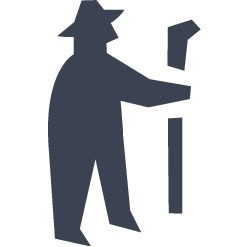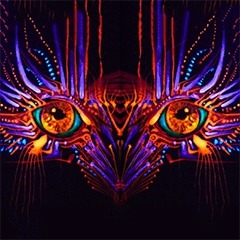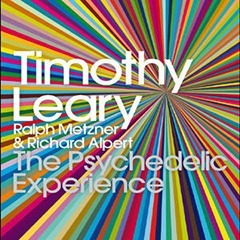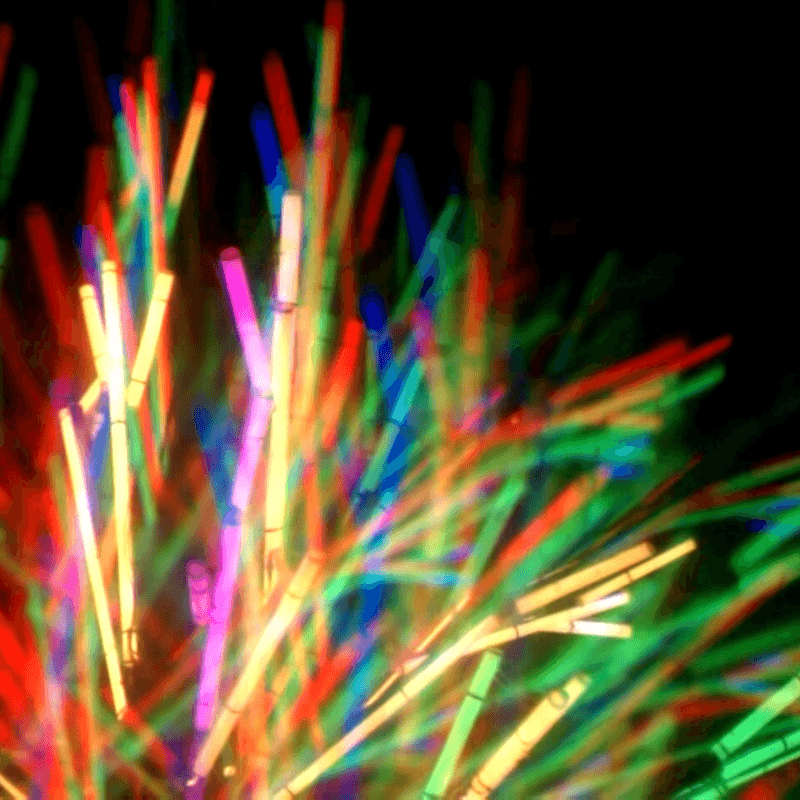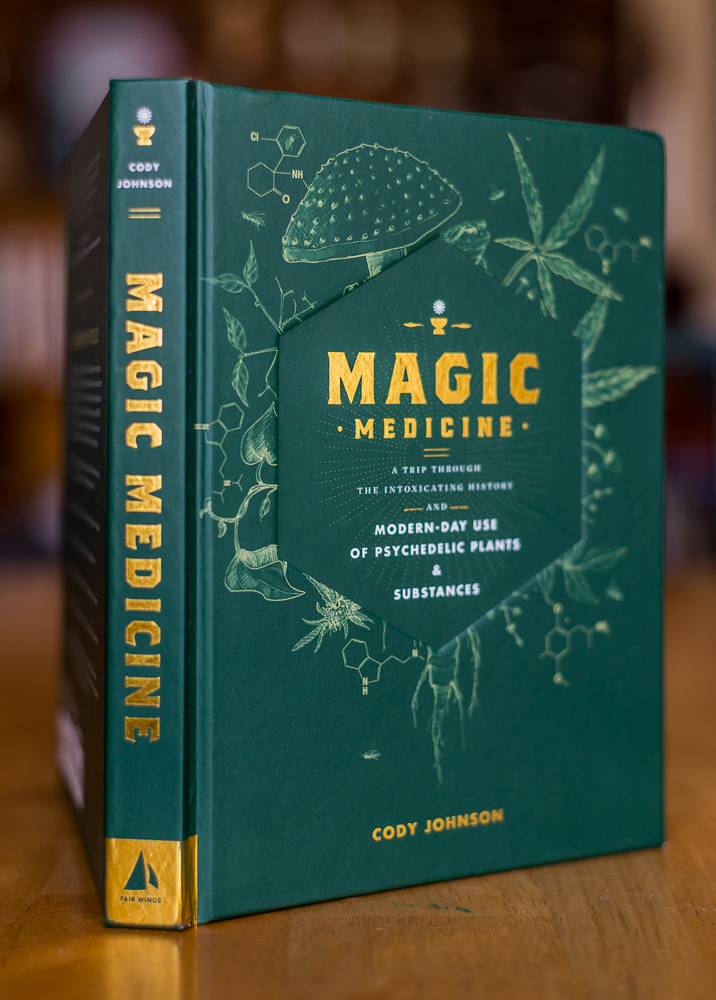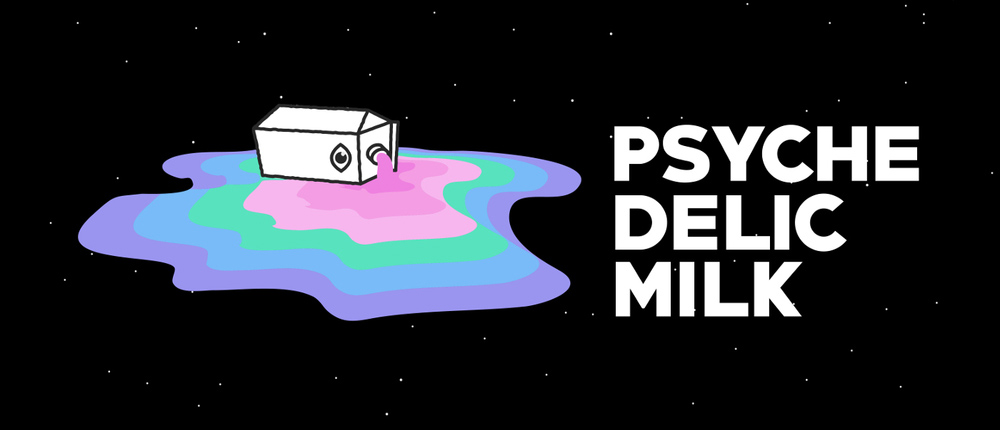
Have you heard of Psychedelic Milk? You should definitely check it out. Psychedelic Milk is a podcast hosted by Ed Liu, all about alternative medicine for scientific healing purposes and spiritual growth. As you might have guessed, he often discusses psychedelics, but dives into all kinds of tangents from Taoist spirituality to flow states. Ed’s always searching for something fresh, and he’s produced over a hundred episodes of high-quality conversations with a range of sparkling personalities.
Ed invited me on his show, and I’m happy to announce that I’m featured on Episode 109: Magic Medicine with Cody Johnson | 23 Psychedelics Around the World. The number 23 refers to the number of chapters in my new book, Magic Medicine, each one covering a fascinating psychedelic plant or molecule. If you haven’t checked it out, definitely give it a look — if you like my blog you’ll love the book.
Here are a few choice quotes from the interview.
![]()
About the Ineffable Firsthand Experience
It doesn’t matter how many volumes you write, you can’t really capture the subjective effects of psychedelics — or perhaps any subjective feeling of consciousness. Language is a pretty clumsy tool for trying to capture our internal experiences, and it’s even more so when those experiences feel unbound by time and space.
If you’re drifting off in your own world of colors and fractals and dimensions, how could you possibly hope to explain that to someone living here in the world of armchairs and tea kettles and cats, things that we all understand? We don’t have the words for it. But we can try.
In the book I aim to show the internal experience, along with the medical and historical traditions. What is it like from a first-person perspective? I have a lot of firsthand quotes sprinkled in the book — even if you’re a psychedelic teetotaler, I’m hoping that a glimmer of psychedelia will land on your sober mind.
The book is 23 chapters, each one a quick treatment of one psychedelic plant of compound. I’m hoping to pique your interest. If I can open the door and show you the library of molecules and plants that we have available, each with their own intriguing history and culture, then I’ve done my job.
On Alan Watts’ famous quote: “If you get the message, hang up the phone.”
I think there are lots of messages. I’d amend Watts’ saying to something like, “When you’ve gotten a message, hang up the phone, until the next time you need a message, and then pick up the phone again.”
That’s not a very good saying. But it gets to the complexity of it — psychedelics are a tool, like any other tool that you can use for self-growth and exploration and spirituality. Just because someone meditates on a regular basis doesn’t mean their meditation is a problem. The same is true of psychedelics. You have to take it on a case-by-case basis.
The Power of Tripping
The psychedelic experience allows you to see your mistakes or counterproductive behaviors more clearly. Am I really doing things on a daily basis to get closer to my goals? Or am I just wasting time?
A good trip is like inviting a hardcore motivational-speaker-slash-therapist into your innermost thoughts. But this person is you, and you don’t let yourself get away with anything. The normal excuses don’t work. The normal defense mechanisms — avoidance, trying not to think about this pain, about this trauma — don’t work. You’re able to revisit memories and fears without so much pain. I’m able to have an honest conversation with myself.
Acid in Narnia — Focusing on Experiences Over Drugs
All the things that happen on a trip are because of you. You’re the room. The psychedelic is just a key. You’re what the key unlocks.
If you’ve ever read The Chronicles of Narnia — we can talk about the wardrobe itself, which is really just a wooden wardrobe, or we can talk about this crazy world with talking lions that exists behind the wardrobe. I choose to focus on Narnia!
If you’re a parent in C.S. Lewis’ book, you’re going to seem really hung up on the wardrobe and miss the bigger picture. “Oh, you kids are playing in the wardrobe again? You kids and that silly wardrobe.” That’s the sound of someone dismissing psychedelics — “You and your drugs.” It’s not about the drugs. If I could, with sleep deprivation or some other method, have the same profound, cathartic experience, I would probably do that. But psychedelics are the most effective efficient, methods we have for reaching this cosmic state. So of course they’re popular among people who want to reach that state of consciousness.
How We Subdue Our Sense of Awe Every Day
There are swirling landscapes of memories and feelings inside of each of us. But our feelings on a day-to-day basis are dulled out of habit. For the purpose of avoiding pain, and also to make yourself a productive member of society. If you find it easy to get to a state where you’re weeping and overwhelmed at the sight of a single flower, and you can’t look away because the glory of life is so incredible, you’re not going to get a lot of work done. You’re not going to be able to set tables at the restaurant if you’re staring at the sunflower in the vase.
You have to dull these feelings of awe in order to get things done. We get into that habit, and then we get home and we dull ourselves with television and mindless conversation. We don’t share the best parts of ourselves, and we forget that those parts are even there. We forget how complex and beautiful we are inside.
We call this a psychedelic experience but at its heart, it is a human experience. The catalyst is a psychedelic but that’s almost irrelevant to the experience itself.
Why Hallucinations Are Really a Peek Inside Your Brain
The fact that we all have universal geometric hallucinations on psychedelics is a sign that we are getting a glimpse of our own visual architecture.
If you’re looking through glasses, it’s good if you can’t see the glasses. They’re just a tool — you want to see the world. If you can see the glasses, it means they’re dirty. Good glasses are inconspicuous.
The rest of your visual system is the same way. If you notice your nose, your brain hasn’t done a good job of editing out that smeared blob in the middle of your vision. Normally it shouldn’t distract you. If you notice the flaws of your vision — the visual noise that appears in low light, for example — your brain is not doing a good job of correcting for errors.
And you don’t normally see the way your neurons are organized. Because the information is so dense, the fidelity is so high, because your vision, in short, is just so good, you don’t see the visual process itself. You forget about it, unless you have a visual condition that draws attention to it.
On psychedelics, you’re finally seeing the brain itself. Because it’s being stimulated directly, and not just by light from the retina. Light is coming in (if your eyes are open) and the psychedelic molecules are swimming around your brain. The two in combination produce these bizarre — yet formulaic — hallucinations. It’s poetic and really cool to think that you’re looking into your visual cortex for the first time.
![]()
You can listen to the full podcast here.
Something you liked? Something you disagree with? Leave a note in the comments!
Liked this post? Subscribe to my RSS feed to get much more!

